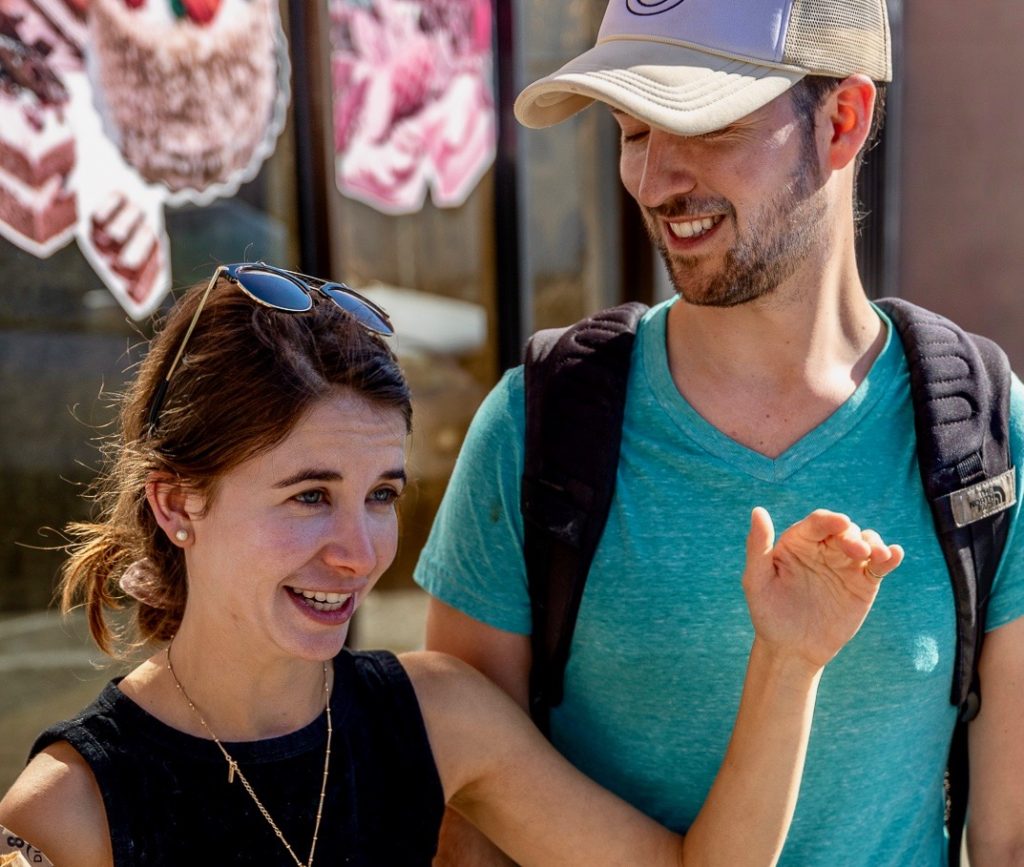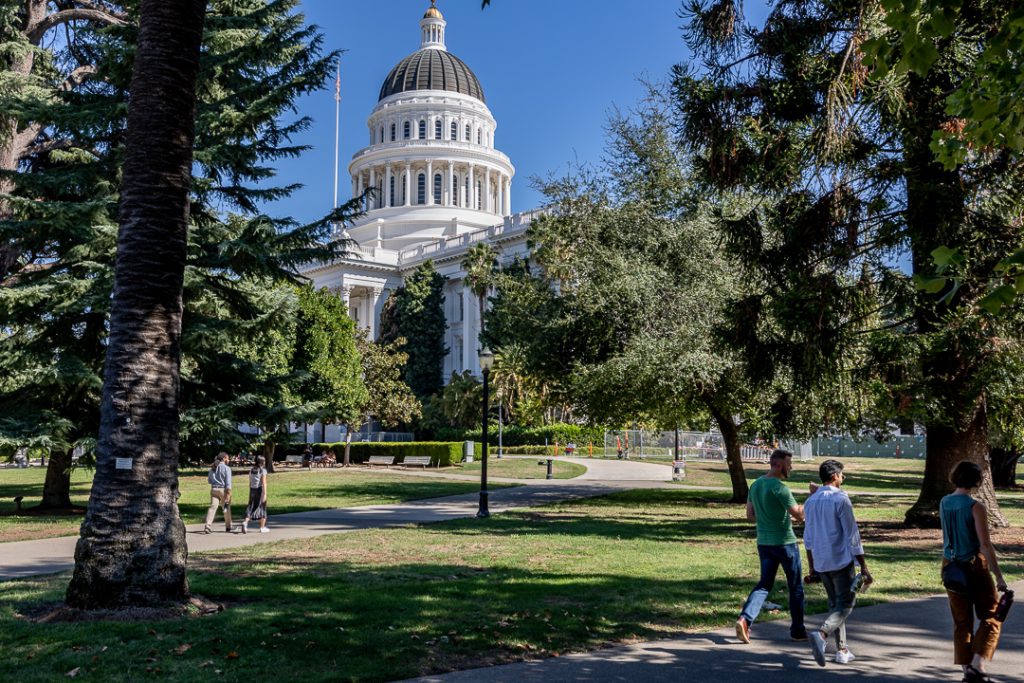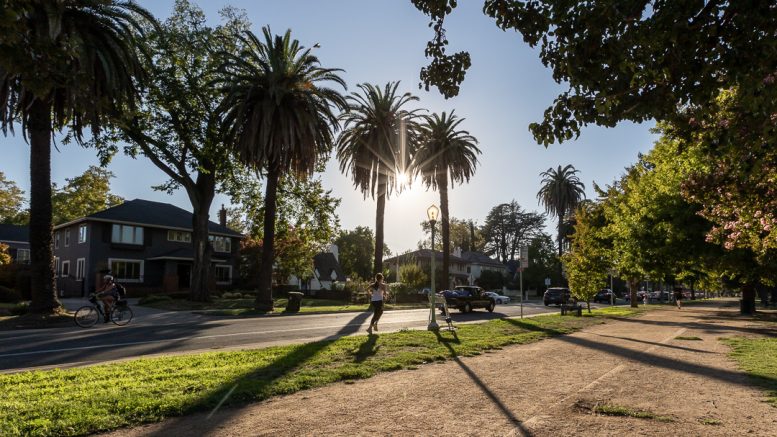SN&R sent reporters to local neighborhoods to ask people’s views about the housing crisis — here’s what they found
By Dina Bugayevskaya, Liam Gravvat, Gavin Hudson, Jenelle Lum, Alex Muegge, Mercy Sosa, Samin Vafaee
Take your pick of lists — on any of them Sacramento routinely ranks as one of the least affordable cities in the United States. And any number of polls shows, similarly, that housing affordability constitutes a major concern for residents in the greater Sacramento area who either want to be able to afford to buy a home, or fear that their children or grandchildren won’t be able to in the near future.
While the City of Sacramento was recently named the first jurisdiction in California to earn a Prohousing Designation from the California Department of Housing and Community Development — which will help the city’s efforts to develop more transit-friendly affordable units — for many local residents, buying a home remains out of reach.
Solving Sacramento, a media collaborative of which SN&R is a member, sent seven student journalists (and one student photographer) from Sacramento State and Sacramento City College to report from neighborhoods throughout the area, knocking on doors and stopping people on the street to hear their thoughts on the housing affordability issue. Here’s what they found.
Downtown and Old Sacramento
It’s taking too long. That was the overall sentiment shared by many people in downtown Sacramento regarding local city officials’ handling of affordable housing. From members of the unhoused community to concerned parents, figuring out how to create more affordable housing downtown seems to be a priority.
Since June 2016, rent for a one-bedroom apartment downtown has increased by over 26%. Meanwhile the larger area’s housing costs are also being impacted by the migration of Bay Area buyers — who on average earn higher incomes than Sacramento residents — to the Capital Region. In 2020 alone, moves from San Francisco County to Sacramento County increased to 70%.
Denise Montour has been subject to the harsh realities of the housing crisis. She was formerly unhoused. “When I was homeless, I wanted a place. I never did drugs. I was an alcoholic though, but I stopped drinking,” Montour said, while sitting with her dog in Old Sacramento, holding a sign and asking passersby for change. “There’s a lot of people who do want a home … but it’s hard [to find a place to live], ‘cause I was there.”
Mountour has since found a place to live, but quality-of-life issues still exist: She said she lives in an old hotel without a kitchen. And while Mountour said she receives Supplemental Security Income (monthly payments to low-income adults or children with disabilities), rents just keep increasing too much to make other apartment options viable.
Elsewhere downtown, many parents said they worry about their children’s future. Shelly Lung, a mother to two children who was listening to a crime podcast while sitting in Capitol Park, said, “I’ve owned a home since I was 23 and I’m set. … But for my kids, yeah, it absolutely is [concerning]. … It’s really, really expensive and there is no affordable housing.”
Dave Hernandez, a father in the downtown area, holds the same view. “I have a 20-year-old son who works full-time, makes decent money and still can’t afford to move out. … It’s impossible for youth today unless you want to live in a rundown, low-income part of the neighborhood,” Hernandez said. He called the local housing situation “ridiculous.”
Maggie Lacastro, a manager for an apartment downtown, expressed a similar sentiment. “Currently, I do not pay rent because my partner and I actually manage an apartment complex to offset the cost of housing. … We lucked out being able to do management,” Lacastro said.

Oak Park
Long-time residents of Oak Park, a historically Black neighborhood that has been gentrifying in recent years, have felt the impacts of a changing housing market — and not necessarily in a good way. But for many first-time homebuyers, Oak Park has provided an affordable option.
“I actually just purchased my house that I’m living in right now a couple months ago and, needless to say, my savings were completely cleared out,” said Marc Brown, 30, who moved to the neighborhood from downtown Sacramento with his partner to have more room for his family. Brown said he is also stretched financially trying to pay for the costs of his upcoming wedding.
Brown would consider leaving Sacramento if housing costs grew too unsustainable: “It gets to a point where you have to think about your future, your kids’ future, your kids’ kids future,” he said as he rolled up his garbage cans.
Cherryll Williams Harris, a senior who lives in Oak Park, was out for a walk along 34th Street. She has spent most of her adult life in Sacramento. “It needs to be a little bit affordable for us seniors because sometimes we have more expenditures than we do money,” said Harris, who receives veterans benefits, including a widow’s pension for her late husband.
While several people interviewed in Oak Park felt that affordable housing is a significant issue, at least one felt the opposite. “Affordable housing is one of the reasons we came to Sacramento. We just expanded our family and were living in the Bay Area,” said Denasia Pinkard, a content design manager for Meta. Pinkard lives in Curtis Park, but said she often visits Oak Park because of its diversity and sense of community.
Stockton Boulevard
Along Stockton Boulevard and Second Avenue is the site of the planned Aggie Square development, a $1.1 billion project that will expand UC Davis’s campus in Sacramento by adding more facilities for advanced research, innovation and higher education.
In an effort to address concerns about how the new development will affect or potentially displace current residents, the Sacramento City Council approved in 2021 a Community Benefits Partnership Agreement that (among other things) promises at least $50 million in city investment for affordable housing along the Stockton Boulevard corridor.
But many residents expressed greater concern for the unhoused population in the area. One resident, a student at UC Davis School of Medicine, who asked to remain anonymous, expressed their empathy for people experiencing homelessness. Their compassion stemmed from both their work in mental health and familial ties to the homeless community. “There’s a lot of negative attitudes that don’t help (the homeless issue),” they said. “If you look deeper, it’s brothers, mothers, sisters and daughters in the homeless community.”
The student left a quote representing what seems like a consensus: “Good luck to people who need a freaking house.”
In an encounter with NPR “Weekend Edition Saturday” host Scott Simon (who happened to be in Sacramento although he does not live in the city), he spoke about the visibility of the homelessness issue, making it hard to ignore. “I think it’s pretty bad, it’s not as bad as SF. … I think it’s something that needs to be adjusted better because there’s too many tents sitting in between freeways,” Simon said.
Simon also discussed how housing relates to his daughter’s situation. “My daughter lives in Sacramento with her boyfriend and it’s obviously a factor for them,” he said. “It isn’t something we discuss frequently, but it is a concern.”
Tremane Johnson expressed his disdain for elected officials in terms of their handling of the growing unhoused community. “It’s pitiful. There’s so much money everywhere and they can’t find money to find a space for the homeless,” he said, as he leaned up against his motorcycle.
East Sacramento
In East Sacramento, residents noted how the lack of affordable housing is a citywide issue. Resident Brian McMonagle remarked on how inflation and increasing mortgage rates have hit the housing market dramatically. “For lower-age earners, it is increasingly difficult to obtain affordable housing,” McMonagle said, outside the porch of his house. “I mean, I’m not sure how you buy a house with minimum wage. So you’re talking about the working poor and lower-income brackets having to be renters.”
McMonagle said the government could incentivize landlords to provide more affordable housing units by giving them tax breaks to do so.
Fellow East Sacramento resident Matteo Borge has friends that have had difficulties finding affordable housing. “All my friends are having an incredibly hard time finding housing and then staying housed, with wages not keeping up,” Borge said. “It’s like when more than most of your paycheck is going just to housing, trying to feed yourself and clothe yourself, can you [house yourself]?”

Lorraine Archuleta, who lives in the Pocket neighborhood, said society at large should be doing more to assist people in need of affordable housing. “We have to help people to be able to afford their homes on their small incomes and also be able to afford to buy a small place,” said Archuleta, who was dog-sitting for a friend in the neighborhood.
Some Pocket residents expressed displeasure with the city and state governments, feeling their response to the homelessness problem was lackluster. “I think affordable housing is necessary all over the country, especially in California,” said Linda McFarland, who also voiced her support for union jobs. “Salaries have not kept up with inflation or the cost of living.”
South Sacramento
South Sacramento resident Chantay Hernandez has been on the waiting list for Section 8 for about nine years after she suffered an injury in her ankle and was unable to work. Due to her personal experience being unhoused, Hernandez said she tries to help other people experiencing homelessness when she can.
“I saw this [homeless] lady, I couldn’t help it and I pulled over,” said Hernandez, who lives in the Parkway neighborhood near Florin Road and Highway 99. “I gave her my sandwich and a couple of bottles of water. Her skin looked so dehydrated from that 100 degree weather.”
Several South Sacramento residents pointed out more innovative thinking around housing solutions could go a long way in addressing both housing affordability and homelessness. One suggestion was to house people in empty government buildings. “I was driving around the city the other day, and I realized that due to COVID, all these different buildings that the city owns, closed,” said Shay Smith. “OK, what the hell are y’all doing with those properties?”
Hernandez agreed that housing people who are homeless in government buildings would benefit Sacramento. “I believe that all elders should be in all these government buildings downtown,” Hernandez said. “I think that they should turn them into studios for the homeless. They’ve been sitting there for years.”
Citrus Heights and North Highlands
Many people interviewed in Citrus Heights and North Highlands said the cost of housing in the area seems unbearable.
Tolibdzhon Latipov, who recently moved from Tajikistan and now lives near Madison Avenue and College Oak Drive in North Highlands, said that “the rent is very expensive for us.” However, Latipov thinks that a lot depends on people’s jobs and incomes. “It is possible to cover your expenses if you work,” he said, expressing his opinion that people who won’t work here “sooner or later will become homeless.”
Mila Karpekina spoke about problems her parents have. They moved from Uzbekistan to the United States 25 years ago. Now they are trying to rent a place to live, but current prices make this impossible. When her parents tried to file for SSI, the government made them feel like their only option was to live in their car, Karpekina said. That is why she thinks that “if you do not save for retirement, you can end up in a car.”
Natasha Dyachkova lives near Antelope. She owns her house, but had been planning to move elsewhere within Sacramento. However, she has decided to wait because of low housing inventory nowadays. “The market is dry and it is still a seller’s market,” Dyachkova said.
Dyachkova also works with seniors and knows housing is not affordable for them, either. “Seniors don’t own. It is hard for them. For the same reason, there are many displaced people,” she said.
Dyachkova believes the problem is that there are not enough resources for people, or they don’t know how to navigate the bureaucratic red tape. “There are programs, but it is hard to go through the process, and many give up.”
While most people interviewed had negative opinions about housing in Sacramento, two were the opposite. “Sacramento is good for newcomers. … Slavic people help, the community helps, the city is not expensive,” said Svetlana Kucher in Russian.
Tatyana Moseyda is a senior who lives in an apartment on Fulton Avenue and is unable to afford a house. But she believes that everything depends on people’s work ethic. “There are a lot of available houses and apartments. If you have money, housing is affordable everywhere. It is possible to earn here, people just need to have a desire. Income equals housing. Those who work can do that,” said Moseyda, in Ukrainian.
Raymond Irwin said he considers the housing market too expensive. “It is hard to buy right now because everybody’s being outbid,” Irwin said. “A lot of people are coming from the Bay Area to Sacramento, and they have a lot more money than we do in this region.”
His partner, Camille Hankin, had a similar experience. “I tried to buy a house, I bid $10,000 over the asking price. And then someone bid over $50,000,” Hankin said. But they plan to stay in Sacramento and the couple is hoping to eventually buy a house together.
This story is a part of the Solving Sacramento journalism collaborative. In 2022, we are focusing on finding solutions to the lack of affordable housing in the Sacramento region. Solving Sacramento is a project of the Local Media Foundation with support from the Solutions Journalism Network. Our partners include California Groundbreakers, Capital Public Radio, Outword, Russian America Media, Sacramento Business Journal, Sacramento News & Review, Sacramento Observer and Univision 19.



Be the first to comment on "Pulse check: growing concern, negative outlook on the future of Sacramento housing "